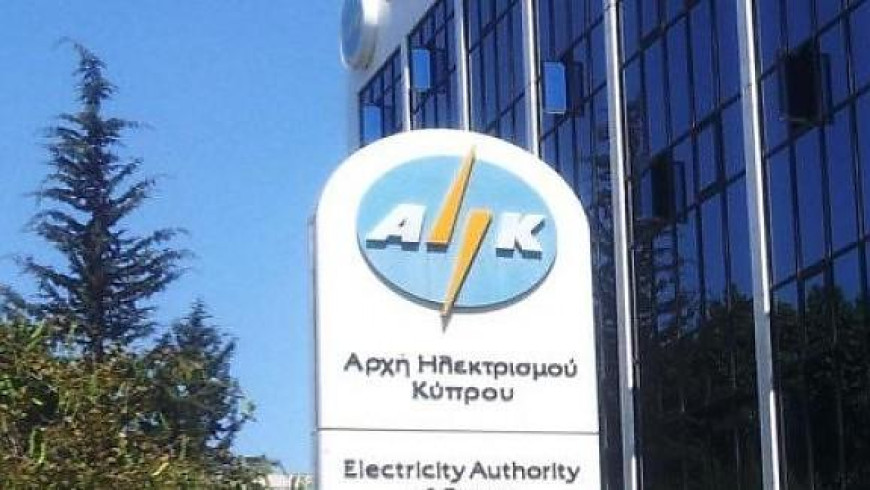Cyprus Banks: Policies Harming Borrowers, Savers, and the Real Economy

Recent statements by Cyprus bankers that the profitable activities of banks are contributing importantly to the good performance of the Cyprus economy and that large bank profits emanate mainly from business in the local market are patently misleading. For example, Bank of Cyprus CEO, Panicos Nicolaou, in an interview with Bloomberg on March 19, 2024 stated that “more than 90% of the bank’s profits come from businesses in the local market”.
However, the ways in which the three largest Cyprus banks have increased their profits by 600% to over 1.1 billion euro in 2023 have hardly supported the real economy and are worrying. It is particularly concerning as these banks could do much more with their resources and policies to enhance the performance of the Cyprus real economy, including improving the welfare of their customers through not exploiting savers and borrowers, respectively, with suppressed deposit rates and unaffordable loan rates.
Factors boosting profits
Firstly, very large profits by Cyprus banks have been attained by using a relatively very large proportion of their assets of over 35% in depositing cash at the ECB earning from 2% to 4% in interest in 2023, rather than in deploying their excess reserves in supporting the real economy with loans to businesses and households[1]. In fact, the interest income of the two largest banks increased by 830 million euro or more than doubled between 2022 and 2023, owing mainly to higher interest receipts from the ECB, and, thus, the latter was the major source of much higher bank profits.
Secondly, what lending that has taken place by Cyprus banks was at interest rates well above the euro area average. By December 2023 interest rates on Cyprus bank loans for house purchases had reached an average of 5.1%, well above the average rate of 3.8% for other euro area countries. And the average interest rate on Cyprus bank loans to corporations was 5.7% in December 2023, exceeding the euro area average of 5.1%.
Thirdly, while Cyprus banks can obtain currently a 4% interest rate on redepositing customer deposits overnight at the ECB, they only gave these customers an average interest rate of 2.06% on their fixed term deposits in January 2024 compared with an average deposit rate of 3.21% for their counterparts in the euro area. Indeed, suppression of deposit rates by Cyprus banks to well below inflation rates during 2023 was the second most important factor in accounting for the very large increase in profits of Cyprus banks in 2023.
And, fourthly, with Cyprus bank loan rates being above the euro area average and their fixed deposit rates well below euro area average rates the net interest margins for Cyprus banks exceeded three percentage points, whereas such margins on average for the euro area was just over one percentage point. Indeed, the net interest margin for Cyprus banks was well in excess of those for the average of banks in most other euro area countries; Greek banks with a net interest margin of 2.7 percentage points came close to that of Cyprus banks.
In addition, there is the question of how much of the profits of Cyprus banks in 2023 will be distributed to their shareholders, that comprise foreign equity and investment funds, which own over 35% of the Bank of Cyprus, more than 57% of Hellenic Bank, and over 37% of Eurobank. Bluntly, how much of the profits of these banks will flow out of Cyprus? In this respect, the Bank of Cyprus announced recently that 112 million euro of their after-tax profit of 487 million euro would be distributed as cash dividends to shareholders and that there would be a share buyback of up to 25 million euro.
Policy Response
How should the Cyprus government and the Central Bank respond to these concerning bank developments? It is noted that the activities of Cyprus banks have taken place in an environment where there is little competition in acquiring funds for their operations. These banks have abundant excess reserves and do not need to compete for deposits by offering higher interest rates. Hence, with Cyprus banks now “earning” 4% interest on their large deposits at the ECB, it becomes more of an ethical question on why banks can’t pass a similar interest rate onto the term deposits of their customers. Indeed, moral suasion is required by the Cyprus authorities to try to convince banks to do so. But this is a difficult task as Cyprus banks, unlike many other banks in the euro area, continue to rigidly suppress deposit rates below the rate of inflation.
Indeed, this suppression of deposit rates is illustrated by the latest scheme of the Hellenic Bank offering customers an interest rate of just 1.5% p.a. on an 18-month fixed term deposit, effectively 1.245% after defense tax deduction, when the annual inflation rate is projected to average at least 2.0% over the next 18 months. This said, the government should at least reduce forthwith the defense tax on interest income from deposits from the current 17% to the same rate as on interest income on Cyprus government bonds of 3%.
At the same time the Central Bank Governor should be stating in ECB Council meetings that liquidity-rich banks are preferring to deposit their abundant excess reserves at the ECB and gain a risk-free easy return of 4%, rather than extending riskier loans at higher interest rates to support the real economy.[2] Most probably, a significant reduction in the ECB’s 4% interest rate on overnight deposits would induce Cyprus banks to lend more to finance worthwhile investments by businesses and households.
Owing to the very large increase in bank profits, governments in both Italy and Spain have imposed additional taxes on so-called “windfall profits” in 2023. In Italy a one-off tax of 40% was applied “to the portion of the interest margin realized by Italian credit institutions in the 2023 fiscal year that exceeds 10% of the interest margin realized in the 2021 fiscal year. As an alternative banks may opt to allocate at least 2.5 times of the additional tax amount to their non-distributable reserves”.
In addition to the Energy Temporary Levy on major energy companies, the Spanish government introduced in December 2022 and extended at end-2023 a Financial and Credit Institutions Levy for application in fiscal years 2023, 2024 and 2025. The levy targets financial institutions operating in Spain with interest and commission income exceeding 800 million euro in the 2019 fiscal year. The levy rate is 4.8% of the institution’s net interest and commission income, and is payable in advance.
Given the above concerns, Cyprus banks should use their very large profits to do more in contributing to improving the performance of the real economy and enhancing the welfare of their customers. And as a considerable portion of the profits of Cyprus banks have been derived from unproductive activity involving the receipt of much interest income from the ECB, an additional tax or bank levy should be imposed on such “windfall” profits.
Furthermore, it would be very important from ethical and equitable points of view that banks squeeze their interest rate margins and enable individuals and corporations to secure a decent return on their savings and to reasonably afford their loan repayments. In this connection, I would propose that 20% of the net interest income of banks in 2023 be taxed and put aside in a fund for the payment of much higher deposit rates under new saving schemes and for subsidizing loan interest rates of banks. For example, a Cyprus bank could introduce a saving scheme for individuals under 35 years paying one percentage point above the HCPI inflation rate in 2024 on a 12-month deposit so as to help younger persons save to afford decent housing and for raising a family. And the afore-mentioned fund could be deployed also in subsidizing housing loans for youth.
[1] According to data of the Central Bank of Cyprus, banks in Cyprus had approximately the same amounts of “cash and cash balances at Central banks” and “loans and advances” as proportions of their assets of 37.6% at the end of the third quarter of 2023. In contrast, data in the ECB’s “Supervisory Banking Statistics” for the third quarter of 2023 (some relevant data on Cyprus are not shown owing to “confidential reasons”) indicate that systemically important banks in the euro area had on average of just 13.3% of their assets in “cash and cash balances at central banks”, but a much higher share of their assets of 55.5% in “loans and advances”.
[2] ECB officials have argued that the increases in the overnight deposit rate to 4% by September 2023 were imposed to take money out of the banking system in order to restrain demand and curb inflationary pressures in the euro area. But, given the weakening of demand and the significant moderation in consumer price increases in recent months maintenance of high overnight deposit rates of the ECB no longer seem appropriate.







 3287.99
3287.99 1275.09
1275.09

